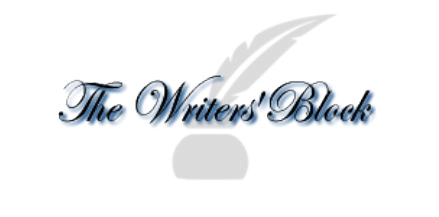Short answer: no
Long answer: depends
In Japanese a haiku is 17 morae. A morae is a sound unit similar but not entirely equal to English syllables.
Rather than go into details of the Japanese language, some examples to illustrate the difference:
In English Tokyo is 3 syllables. 2 if you try to glide the kyo in the Japanese way. In Japanese, it's 4 morae. To-u-kyo-u.
In English bacon is 2 syllables. In Japanese, it's 4 morae. ba-a-co-n†.
And so on.
The two ideas don't overlap. It's incorrect to say haiku are 17 syllables.
This brings us to the next point...
In Japanese, haiku are very very short
As we saw above, Japanese words tend to take more morae/syllables than English words do. As a result, haiku in Japanese are really short. You think haiku in English are short? Compared to Japanese haiku, English haiku are long!
Look at a haiku from Issa I previously posted.
蝸牛そろそろ登れ富士の山
Katatsumuri / sorosoro nobore / Fuji no yama
Literally it says: snail / slow climb / Mt Fuji
That's it! Whereas if we padded this out to a full 17 syllables, we might say something like:
the slow tiny snail
climbs up little by little
the great mount fuji
Compared to the Japanese haiku, this is bloated and ugly, telling us all kinds of things we don't need to know.
In Japanese they typically say a haiku should be one breath. Using 17 syllables in English, however, each line becomes one breath—and maybe more for the middle line.
17 syllables is too long
Some haiku poets say we should make the English haiku 11 syllables long. 3/5/3 to better match the briefness of the Japanese haiku. While I do think that would be better than what we do now, I don't think it would work.
Jack Kerouac addressed this:
The American Haiku is not exactly the Japanese Haiku. The Japanese Haiku is strictly disciplined to seventeen syllables but since the language structure is different I don't think American Haikus (short three-line poems intended to be completely packed with Void of Whole) should worry about syllables because American speech is something again...bursting to pop.
Above all, a Haiku must be very simple and free of all poetic trickery and make a little picture and yet be as airy and graceful as a Vivaldi Pastorella.
Kerouac wrote a lot of great haiku in his life, almost none of them with 17 syllables. Most very very short, like this one:
No telegram today
only more leaves
fell.
I agree with him. Haiku in English should just be short verses. No need to pay attention to syllables, just make it short. Aim for one breath.
Having said that, I do know that having some structure is actually better for some people. It frees them up in a sense and allows more creativity. If that is you, I'd suggest aiming for a 11 syllable 3/5/3 haiku.
The English Haiku
You may get the idea that I think using 17 syllables for haiku in English is wrong and it should be much shorter. I do—but I also don't. Let me explain.
As Kerouac said the American haiku is not the same as the Japanese haiku. They are different things. English and Japanese are very different languages and the small verse just doesn't really translate that well.
So it depends on you. Are you trying to capture the feeling of a Japanese haiku? If so, make it as short as you can. Also use a word referring to the current season if you can. Even free-form haiku in Japan today that completely disregard morae count still often use nature words. Also try to include some kind of juxtaposition of two images. That wouldn't be a Japanese haiku, but it would get you close.
evening
snow beating down
my son is snoring
If that is just too short for you, and you want to stick to the 17 syllables you learned in grade school, go for it. I have nothing against that form. I just do think we should rename it because it's not really haiku. Now I know that just isn't going to happen. Too many people in the English speaking world know haiku as only that. Oh well. I'm ok with that. I just want people to know that shorter haiku that don't count syllables are not incorrect (arguably they are more correct)
Footnotes
†: Actually in romaji it'd probably be spelled beikon. I write baacon just to make it easier to read.
❦
Thank you greatly to @sunravelme of the Writers Block for editing this post. If you need help with your writing, head there to get it. Or just to hang out with all the great writers.

❦
| If you enjoyed this post, please like and resteem. Also be sure to follow me to see more from Japan everyday. |
|---|
I post one photo everyday, as well as a haiku and as time allows, videos, more Japanese history, and so on. Let me know if there is anything about Japan you would like to know more about or would like to see.
| Who is David? | |
|---|---|
 | David LaSpina is an American photographer lost in Japan, trying to capture the beauty of this country one photo at a time. |
